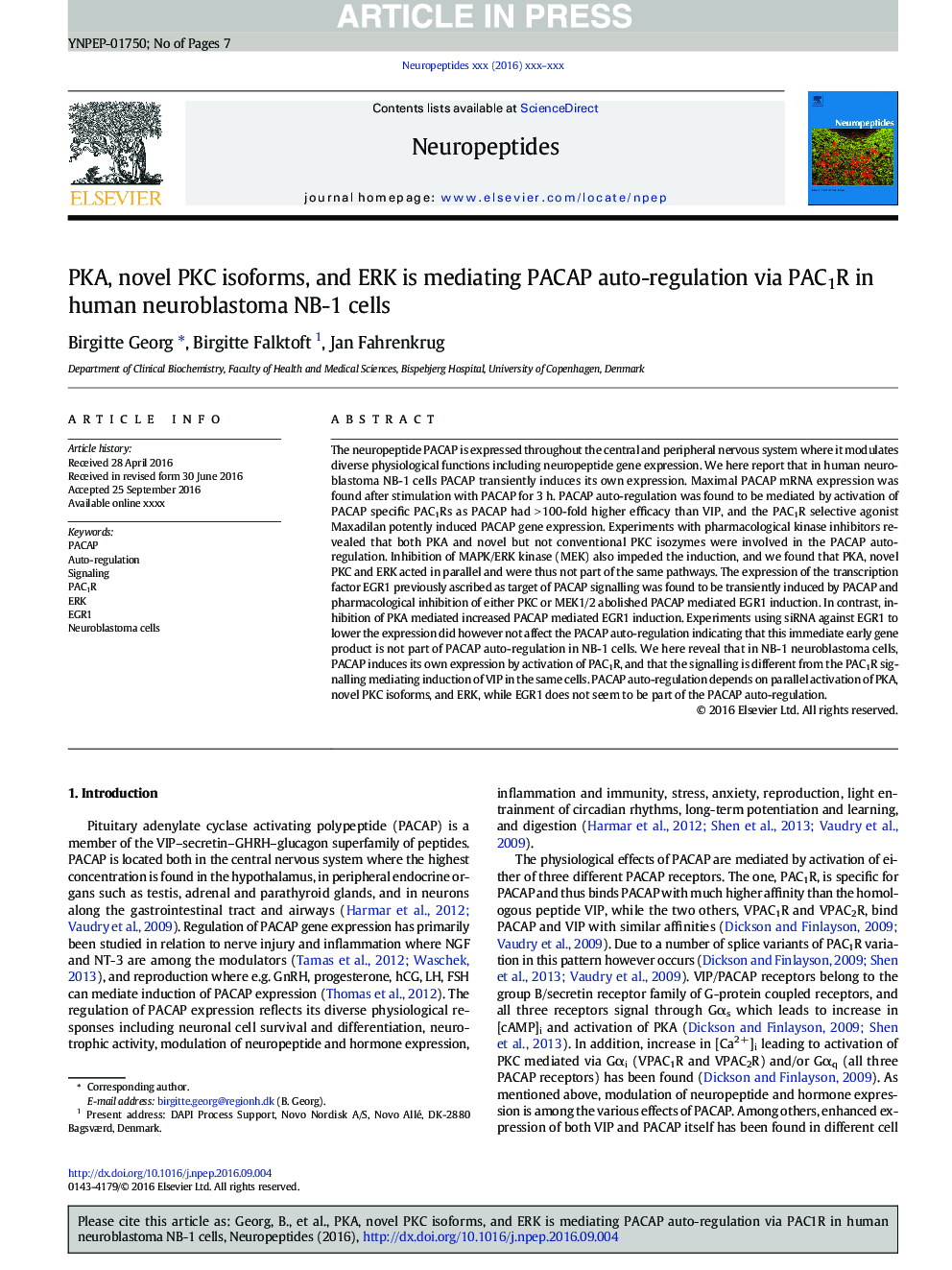| Article ID | Journal | Published Year | Pages | File Type |
|---|---|---|---|---|
| 8633874 | Neuropeptides | 2016 | 7 Pages |
Abstract
The neuropeptide PACAP is expressed throughout the central and peripheral nervous system where it modulates diverse physiological functions including neuropeptide gene expression. We here report that in human neuroblastoma NB-1 cells PACAP transiently induces its own expression. Maximal PACAP mRNA expression was found after stimulation with PACAP for 3Â h. PACAP auto-regulation was found to be mediated by activation of PACAP specific PAC1Rs as PACAP had >Â 100-fold higher efficacy than VIP, and the PAC1R selective agonist Maxadilan potently induced PACAP gene expression. Experiments with pharmacological kinase inhibitors revealed that both PKA and novel but not conventional PKC isozymes were involved in the PACAP auto-regulation. Inhibition of MAPK/ERK kinase (MEK) also impeded the induction, and we found that PKA, novel PKC and ERK acted in parallel and were thus not part of the same pathways. The expression of the transcription factor EGR1 previously ascribed as target of PACAP signalling was found to be transiently induced by PACAP and pharmacological inhibition of either PKC or MEK1/2 abolished PACAP mediated EGR1 induction. In contrast, inhibition of PKA mediated increased PACAP mediated EGR1 induction. Experiments using siRNA against EGR1 to lower the expression did however not affect the PACAP auto-regulation indicating that this immediate early gene product is not part of PACAP auto-regulation in NB-1 cells. We here reveal that in NB-1 neuroblastoma cells, PACAP induces its own expression by activation of PAC1R, and that the signalling is different from the PAC1R signalling mediating induction of VIP in the same cells. PACAP auto-regulation depends on parallel activation of PKA, novel PKC isoforms, and ERK, while EGR1 does not seem to be part of the PACAP auto-regulation.
Related Topics
Life Sciences
Biochemistry, Genetics and Molecular Biology
Endocrinology
Authors
Birgitte Georg, Birgitte Falktoft, Jan Fahrenkrug,
